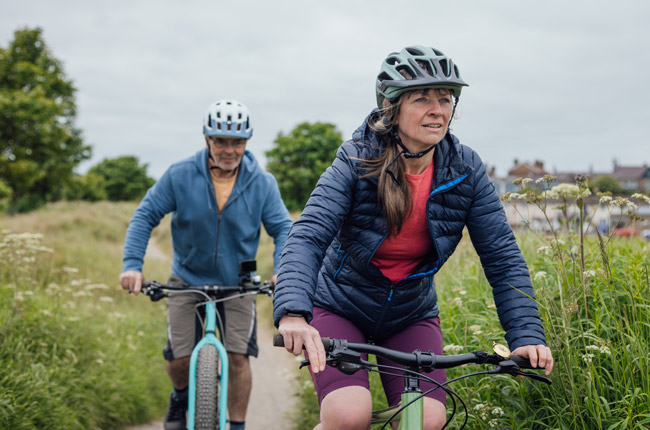Thank you World Cancer Research Fund International for funding our research examining the role of rehabilitation after bone marrow transplant to assist patients to return to their best functional levels. The proposed investigation will measure functional and health-related quality of life outcomes after receiving an eight-week exercise and diet rehabilitation programme, combined with important goal-setting strategies.
We know that eating well and staying active are important for people with cancer. We expect that new knowledge gained in our research will assist patients to regain their capacity to function well in the community and influence adoption of a new pathway of care internationally after a bone marrow transplant. – Prof Linda Denehy
Grant title
Rehabilitation after bone marrow transplant to improve patient outcomes. The REBOOT study.
Background
Eating well and exercise are extremely important for people with cancer. There is now compelling evidence that participating in regular exercise has benefits for addressing cancer treatment-related side-effects and improving overall function, quality of life and survival for individuals with cancer. However, there is limited research on the role of nutrition and exercise interventions in blood cancers.
Bone marrow transplant is a demanding treatment commonly used in the management of more aggressive blood cancers, which can lead to loss of muscle bulk, malnutrition, reduced physical function, increased cancer-related fatigue, and poor quality of life. The debilitating impact of a cancer diagnosis and treatments means patients need encouragement and support to eat well and stay active. Unfortunately, there are few programmes to support patients after a bone marrow transplant to get them back to their best functional levels.
Aims and objectives
This research project aims to test if providing a rehabilitation programme for people after bone marrow transplant, compared with usual care, improves outcomes that are important to patients, including quality of life and physical function.
How will it be done
We will study 170 patients after bone marrow transplant and randomly divide them into two groups to receive either usual care or a rehabilitation treatment. The rehabilitation group will include nutrition and exercise interventions delivered by experienced health professionals for eight weeks, and advice about setting behaviour change goals to maximise the effect of the prescribed interventions. This will be delivered either face-to-face or by telehealth depending on patient choices. Consumer input will be incorporated into the design of the study, and we will build upon our previous consumer feedback.
Potential impact
This research has the potential to directly impact the treatment of patients with cancer. Undertaking supervised exercise, whether at a centre or at home via telehealth, is a beneficial treatment adjunct for patients with cancer. Combined nutrition, exercise and behaviour change programmes contribute to patients surviving well and may also help to prolong life by improving muscle mass.
Importantly, telehealth will be an option for follow-up of patients to reduce barriers to involvement and to improve equity of access to rehabilitation. Positive trial findings will influence policy and clinical practice, ultimately improving the model of care for patients after bone marrow transplant.
Grant publications
Denehy, Linda et al. Rehabilitation after bone marrow transplant compared with usual care to improve patient outcomes (REBOOT): protocol for a randomised controlled trial BMC cancer vol. 25,1 532. 24 Mar. 2025.



